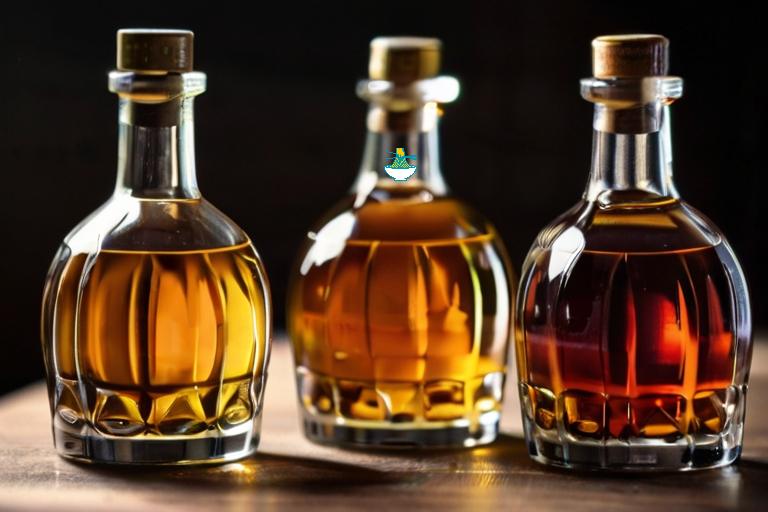Embark on a journey through the heart and soul of Croatia with our exquisite Rakija collection. Crafted with centuries-old traditions and infused with the vibrant flavors of the Adriatic coast, each sip encapsulates the essence of Croatian culture. From the velvety smoothness of plum to the bold zest of herbs, our handpicked selection offers a taste adventure like no other. Whether sipped slowly to savor the moment or shared among friends to celebrate life's joys, Croatia Rakija promises an unforgettable experience. Indulge in the spirit of Croatia and let each glass transport you to the sun-kissed shores and lush landscapes of this enchanting land.
Ingredients:
- 3 kg ripe fruit (plums, grapes, apricots, or cherries)
- 1 kg sugar
- 5 liters clear distilled alcohol (at least 40% alcohol by volume)
- 1 cinnamon stick (optional)
- 3-4 cloves (optional)
- Zest of 1 lemon (optional)

Instructions:
1- Choose ripe, high-quality fruit. Wash them thoroughly and remove any stems or seeds. You can use a single type of fruit or a combination for a unique flavor profile.
2- Place the prepared fruit in a clean, sterilized glass jar or ceramic crock. If you're using larger fruits like plums or apricots, you may want to cut them into halves or quarters to release more flavor.
3- Add the sugar to the fruit. The amount of sugar can be adjusted based on your preference for sweetness and the natural sweetness of the fruit. Stir gently to coat the fruit evenly with sugar.
4- Optional: Add spices like cinnamon stick, cloves, or lemon zest to infuse additional flavors into the Rakija. These can complement the natural flavors of the fruit and add depth to the brandy.
5- Pour the clear distilled alcohol over the fruit and sugar mixture, ensuring that the fruit is completely submerged. Seal the jar or crock tightly with a lid or cover.
6- Place the container in a cool, dark place away from direct sunlight. Let the mixture steep for at least 3 months, allowing the flavors to meld and develop. Some traditional recipes call for longer aging periods, even up to a year or more.
7- Periodically check on the Rakija during the aging process. You can gently shake the container to mix the ingredients and accelerate flavor infusion.
8- After the desired aging period, strain the mixture through a fine mesh sieve or cheesecloth to remove the fruit solids and spices. Transfer the clear liquid into clean, sterilized bottles for storage and serving.
9- Store the Rakija bottles in a cool, dark place until ready to enjoy. Serve chilled as a digestif after meals to savor the rich flavors of Croatia's traditional fruit brandy.
10- Cheers to the craftsmanship of Croatian Rakija and the timeless tradition of enjoying fine spirits with friends and loved ones!
Nutritional Values:
Providing exact nutritional values for the ingredients in the Croatian Rakija recipe can be challenging because the final product, Rakija, primarily contains alcohol, which doesn't have significant nutritional content aside from calories. However, I can provide some approximate values for the fruits and sugar used in the recipe:
Fruit (e.g., plums, grapes, apricots, or cherries):
- Nutritional values can vary based on the specific fruit used.
- On average, fruits are low in fat and protein but contain natural sugars and various vitamins and minerals.
For example, 100 grams of plums may contain approximately:
- Calories: 46 kcal
- Carbohydrates: 11.4 g
- Fiber: 1.4 g
- Sugars: 9.9 g
- Vitamin C: 6.4 mg
- Potassium: 157 mg
benefits:
- Fruits are rich in vitamins, minerals, and antioxidants, which support overall health and immunity.
- They provide dietary fiber, which aids in digestion and helps maintain gut health.
- Consuming a variety of fruits can contribute to heart health and may reduce the risk of chronic diseases like cardiovascular disease and certain cancers.
Sugar:
- Sugar is essentially pure carbohydrates and provides energy (calories) but lacks significant other nutrients.
- Granulated sugar typically contains about 4 calories per gram.
- In the recipe, 1 kg of sugar would provide roughly 4000 kilocalories.
benefits:
- While sugar is primarily used as a sweetener in the recipe, it provides quick energy.
- However, it should be consumed in moderation as excessive sugar intake may lead to weight gain, dental issues, and an increased risk of chronic diseases like type 2 diabetes and heart disease.
- In small amounts, sugar can enhance the flavor and texture of foods and beverages.
Since the Rakija is primarily made with clear distilled alcohol, its nutritional content primarily consists of alcohol calories, which are approximately 7 calories per gram. The nutritional values for the final Rakija product will depend on the type and quantity of fruit used, the amount of sugar added, and the alcohol content of the distilled alcohol used. Keep in mind that Rakija is meant to be consumed in moderation as an alcoholic beverage, and its nutritional content should be considered in the context of overall dietary balance and health considerations.


Comments